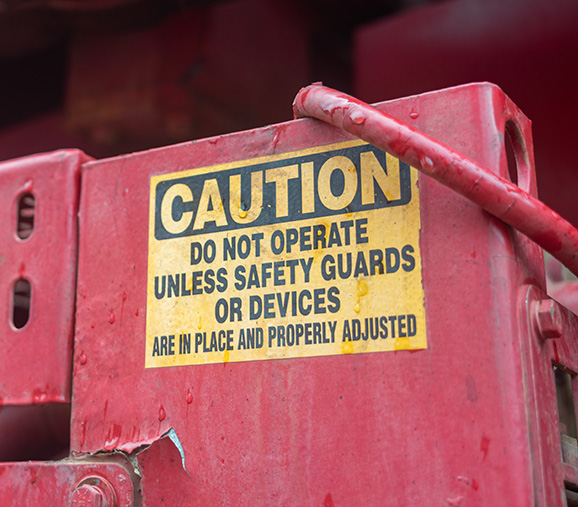: The PM joins us now in the Senate courtyard at Parliament House. Prime Minister, good morning. Thanks for joining us.
ANTHONY ALBANESE, PRIME MINISTER: Good morning, Michael.
ROWLAND: I want to start with the energy bill relief announced by the Treasurer last night. ACOSS, the Australian Council of Social Service, says in this view it’s extraordinarily wasteful. Not means testing that giving it to millionaires as well as people struggling. They’ve got a point, haven’t they?
PRIME MINISTER: No. What we’ve done is there are two sorts of cost of living relief in this Budget, some of it broad, some of it very much targeted so that we get, for example, a tax cut for every taxpayer, but we also have energy bill relief for every household. At the same time, of course, we’re strengthening Medicare through every community and throughout the entire country will benefit from our additional homes.
ROWLAND: Couldn’t you have saved money, though, by means testing this payment? Wealthy Australians surely don’t need the $300 a year.
PRIME MINISTER: Well, that’s an argument on tax too, Michael, that I heard. We are changing the tax scales all the way through.
ROWLAND: You did cut the tax benefits to wealthy Australians when you reworked your stage three tax cuts.
PRIME MINISTER: Actually, Michael, we’re increasing the 180,000 rate, the top rate, to 190,000. That’s the first time that top rate has been increased since the Gillard Government back in 2012. This is the most efficient way to deliver it. We want to make sure, because we understand that households are under pressure right up and down the income scale, that in those two areas, a tax cut for every taxpayer, energy bill relief for every household will make a difference, will also provide that cost of living relief whilst putting that downward pressure on inflation, which is one of the objectives of the Budget. That’s why we’ve delivered the second surplus in a row, $9.3 billion projected, following the $22 billion surplus we delivered last year. And bear in mind that we inherited a $78 billion deficit. That’s a massive turnaround that we’ve implemented and that was a big challenge in this Budget. How do we deliver cost of living relief whilst continuing to moderate inflation?
ROWLAND: Before we move on from the energy bill front, how can you ensure some energy companies won’t potentially price gouge here?
PRIME MINISTER: Well, we know this works because we’ve done it, Michael, and it’s been effective. It made a difference to people. It put that downward pressure on prices, but also had an impact on moderating inflation.
ROWLAND: Now let’s move on to inflation. You are hoping these measures will help bring down inflation to the top of the RBA’s target band by Christmas. This is an extraordinarily big economic and political gamble for the Government, isn’t it?
PRIME MINISTER: We are basing that assessment on Treasury and Finance on the advice that we’ve received, in part based upon the experience.
ROWLAND: But what if they get it wrong?
PRIME MINISTER: Well, we know that they didn’t get it wrong when it came to the energy price relief plan. The Opposition got it wrong by voting against it as they voted against all of our cost of living measures that we’ve implemented. We have brought inflation down from 2.1 per cent in the March 2022 quarter was where it peaked. And then we had the Frydenberg Budget that pushed a whole lot of money into the economy. A whole lot of cash payouts occurred then, and we’ve dealt with that. We had to turn that around and we’ve done that. So, inflation is currently at an annual figure of 3.6% per cent. That’s lower than the figure that was estimated in the mid-year forecast at the end of last year. So, we know inflation is moderating. There’s more work to be done, but this Budget will assist that process.
ROWLAND: You’re entirely confident that the combination of the energy bill relief and the increase in Commonwealth rent assistance will drive down inflation by that half a percentage point next year?
PRIME MINISTER: Well, that’s what Treasury have said.
ROWLAND: Do you back them?
PRIME MINISTER: Of course I back Treasury.
ROWLAND: Because they get stuff wrong. They got the deficit, which is turned into a surplus wrong, by about $10 billion.
PRIME MINISTER: No, what we’ve done is to turn around not just last year and this year, but going forward as well, we’ve made a difference of over $200 billion in the bottom line. That’s hard work. That’s going through finding savings, which we’ve done again in this year’s Budget. That is making sure that we have the right mechanisms in place. It’s not just the measures that you refer to. One element in this Budget as well is further extension of Fee Free TAFE. Now, that makes it obviously cheaper, makes it free for people to do courses, but it does something else as well. It sets Australia up for the future by providing those skills to Australians in areas of skill shortage. So, good for the short term but also good for the long term. And that’s what good budgets do. They deal with immediate pressures, but set Australia up for the long term, which is what our future made in Australia agenda is about as well.
ROWLAND: So, you’re hoping the RBA board, the Governor, Michele Bullock, will look favourably on what you announced last night.
PRIME MINISTER: Our job is to get our settings right, to look after fiscal policy. We’ve done that. Michael, you’ve been doing this for a while. But I tell you what, during the previous Government, you would have been out here for ten years and you wouldn’t have been talking about surpluses because they didn’t deliver one. They delivered mugs, but they didn’t actually deliver a surplus because they treated Australians like mugs. They didn’t do the hard work. We’ve done the hard work.
ROWLAND: You’ve got back to back surpluses. Excuse the interruption but you’ve got deficits as far as the eye can see after that.
PRIME MINISTER: They’re smaller than they would have been.
ROWLAND: But they’re larger than what was forecast in the mid-year update.
PRIME MINISTER: They are smaller than what we inherited, Michael. We have done an enormous task in making savings, in improving efficiencies, in making sure, as well we’ve created the space. One of the things we had to do in this Budget was to extend programs that would have cut off. Programs like the MyGov site was not funded going forward. Programs for cancer programs across a range of health areas simply didn’t have that ongoing funding. For all of their rhetoric about issues in the Northern Territory, when we came to government, community services in Alice Springs weren’t fully funded on an ongoing basis. We’ve had to do that. We’ve done that and produced two surpluses, which is two more than our opponents produced the entire time they were in government.
ROWLAND: Couple of questions before we go. You mentioned the future made in Australia program, fleshed out a bit more by the Treasurer last night. How can taxpayers be assured they’ll get value for money through those production tax incentives for both green hydrogen and critical minerals?
PRIME MINISTER: Because, by definition, production tax credits reward success. They encourage investment and they reward success. That’s why we’ve put in place those mechanisms. This is about Australia seizing the opportunities in the transformation in the global economy. We can get this right. There’s no country that is better positioned than Australia to take advantage of the fact that we have all the resources under the ground that will drive the global economy this century. Copper, vanadium, lithium, we have the lot of them, nickel. We also have not so much this morning in Canberra, but we have the best solar resources in the world as well. We can do that to create green hydrogen, to manufacture more things here, to create secure jobs and to grow our economy.
ROWLAND: Are we still expecting a budget next year in March?
PRIME MINISTER: Yes. That’s when we’ll schedule a budget next year.
ROWLAND: It’s earlier than forecast, though. That leaves room open for an election by May next year.
PRIME MINISTER: Well, you can’t do a budget and an election in May, so by definition, you have to bring forward a budget.
ROWLAND: And if the economic winds turn your way, an early election this year, it that in the frame?
PRIME MINISTER: We’re focused on the economy and getting the settings right. We’ll leave the political obsession to our opponents, who last night were saying they’d oppose making things here, oppose Australian jobs. No wonder they are known as the Opposition rather than an alternative government, because they just oppose everything.
ROWLAND: Ok, Prime Minister, thanks for joining us on News Breakfast this morning.
PRIME MINISTER: Thanks very much.








